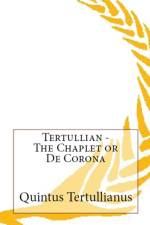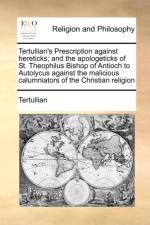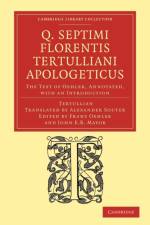av Tertullian
131
As persecutions in increasing number threaten us, so the more are we called on to give earnest thought to the question of how faith ought to receive them, and the duty of carefully considering it concerns you no less, who no doubt, by not accepting the Comforter, the guide to all truth, have, as was natural, opposed us hitherto in regard to other questions also. We have therefore applied a methodical treatment, too, to your inquiry, as we see that we must first come to a decision as to how the matter stands in regard to persecution itself, whether it comes on us from God or from the devil, that with the less difficulty we may get on firm ground as to our duty to meet it; for of everything one's knowledge is clearer when it is known from whom it has its origin. It is enough indeed to lay it down, (in bar of all besides,) that nothing happens without the will of God. But lest we be diverted from the point before us, we shall not by this deliverance at once give occasion to the other discussions if one make answer-Therefore evil and sin are both from God; the devil henceforth, and even we ourselves, are entirely free. The question in hand is persecution. With respect to this, let me in the meantime say, that nothing happens without God's will; on the ground that persecution is especially worthy of God, and, so to speak, requisite, for the approving, to wit, or if you will, the rejection of His professing servants. For what is the issue of persecution, what other result comes of it, but the approving and rejecting of faith, in regard to which the Lord will certainly sift His people?




















